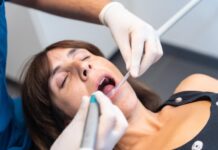Post-Traumatic Stress Disorder (PTSD) is a debilitating condition that can result from experiencing or witnessing a traumatic event. It affects individuals emotionally, mentally, and physically, impacting their quality of life. Fortunately, there are effective treatments available to help individuals with PTSD recover and regain control over their lives. In this article, we will explore several evidence-based PTSD treatments that have proven to be effective in addressing the symptoms and promoting healing. By understanding these treatment options, individuals can make informed decisions about their mental health and embark on a path towards recovery.
I. Cognitive-Behavioral Therapy (CBT):
Cognitive-Behavioral Therapy (CBT) is a widely recognized and effective treatment for PTSD. It focuses on identifying and modifying negative thought patterns and behaviors associated with the traumatic event. CBT helps individuals develop coping strategies, challenge distorted beliefs, and gradually confront trauma-related triggers. Through various techniques such as exposure therapy, cognitive restructuring, and skills training, CBT empowers individuals to regain control over their thoughts, emotions, and behaviors, leading to symptom reduction and improved functioning.
II. Eye Movement Desensitization and Reprocessing (EMDR):
Eye Movement Desensitization and Reprocessing (EMDR) is a specialized remedy approach designed to assist people procedure annoying recollections and decreasing their emotional impact. Best Psychologist In Dubai During EMDR sessions, individuals engage in bilateral stimulation, which may involve following the therapist’s hand movements or listening to alternating sounds. This process allows for the reprocessing of traumatic memories, leading to their integration into a more adaptive and less distressing narrative. EMDR has shown significant efficacy in reducing PTSD symptoms and promoting emotional healing.
III. Trauma-Focused Cognitive Behavioral Therapy (TF-CBT):
Trauma-Focused Cognitive Behavioral Therapy (TF-CBT) is specifically designed for children and adolescents who have experienced trauma. It combines cognitive-behavioral techniques with trauma-focused interventions to address the unique needs of young individuals with PTSD. TF-CBT aims to help children and their families process traumatic experiences, manage distressing emotions, and develop healthy coping skills. It often includes components such as psychoeducation, relaxation techniques, trauma narration and processing, and parent-child sessions, providing a comprehensive approach to healing.
IV. Medication:
Medication can be an essential component of PTSD treatment, particularly for individuals experiencing severe symptoms or co-occurring mental health conditions. Selective serotonin reuptake inhibitors (SSRIs) are commonly prescribed antidepressant medications that have shown effectiveness in reducing PTSD symptoms. They help regulate mood, manage anxiety, and improve sleep. Other medications, such as prazosin, may be prescribed to alleviate nightmares and sleep disturbances associated with PTSD. It is important to work closely with a psychiatrist or healthcare provider to find the most appropriate medication and dosage for individual needs.
V. Group Therapy and Support Groups:
Group therapy and support groups provide valuable support and connection for individuals with PTSD. Sharing experiences, insights, and challenges with others who have gone through similar experiences can be immensely beneficial. Group therapy sessions, led by trained therapists, offer a safe and supportive environment to process trauma, learn from others, and develop coping skills. Support groups, whether in-person or online, provide a sense of community and validation, reducing feelings of isolation and stigma often associated with PTSD.
VI. Mindfulness-Based Practices:
Mindfulness-based practices, such as mindfulness meditation and yoga, have shown promising results in reducing PTSD symptoms and improving overall well-being. These practices involve bringing awareness to the present moment, and cultivating non-judgmental observation of thoughts, emotions, and bodily sensations. By engaging in mindfulness-based techniques, individuals can develop a greater sense of self-regulation, reduce reactivity to triggers, and promote relaxation. These practices can also enhance self-compassion and acceptance, allowing individuals to approach their traumatic experiences with greater resilience and understanding.
VII. Complementary and Alternative Approaches:
Complementary and opportunity techniques may be used along with conventional PTSD remedies to aid ordinary well-being. Techniques such as acupuncture, massage therapy, art therapy, and equine-assisted therapy have shown promise in reducing PTSD symptoms and promoting relaxation. These approaches provide additional avenues for individuals to explore their emotions, express themselves creatively, and connect with others in non-verbal ways. While more research is needed to fully understand their effectiveness, many individuals have reported positive experiences and benefits from incorporating these approaches into their treatment plans.
VIII. Self-Care and Lifestyle Changes:
Engaging in self-care activities and making lifestyle changes can significantly contribute to the management of PTSD symptoms. Regular exercise, adequate sleep, balanced nutrition, and stress reduction techniques can help regulate mood, reduce anxiety, and improve overall well-being. Engaging in activities that bring joy, relaxation, and a sense of fulfillment can also be beneficial. It is important to create a self-care routine that is personalized and sustainable, incorporating activities that resonate with individual preferences and needs.
Conclusion:
Effective PTSD treatments provide individuals with a range of options to address their symptoms and promote healing. Cognitive-Behavioral Therapy (CBT), Eye Movement Desensitization and Reprocessing (EMDR), Trauma-Focused Cognitive Behavioral Therapy (TF-CBT), medication, group therapy, mindfulness-based practices, complementary and alternative approaches, and self-care strategies all play important roles in managing and reducing the impact of PTSD. It is essential to work with qualified mental health professionals to determine the most suitable treatment approach based on individual needs and preferences. With the right support and treatment, individuals with PTSD can find relief from their symptoms, regain control over their lives, and embark on a journey of healing and recovery.





